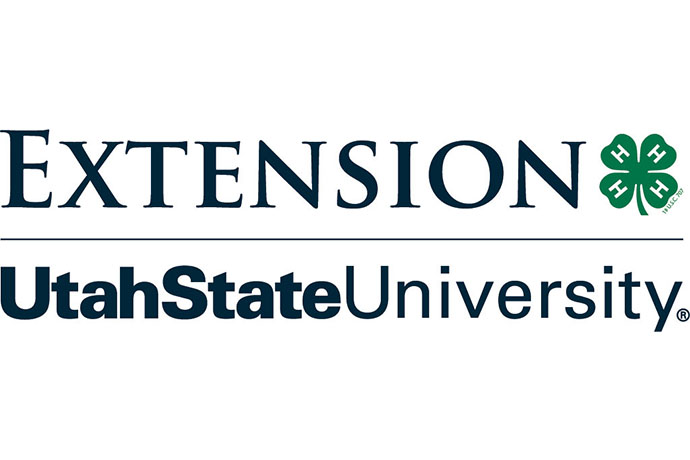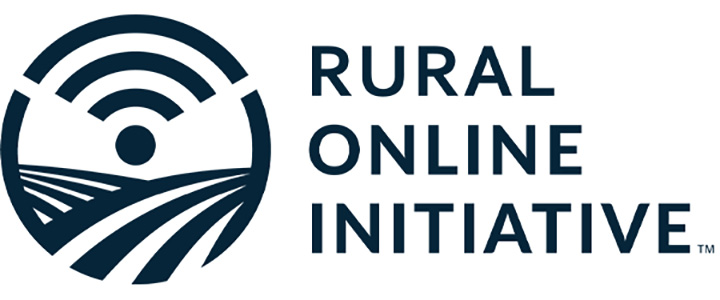Remote Work Professional Certification Course
COURSE DESCRIPTION
COURSE REQUIREMENTS
COURSE SCHEDULE
The Remote Work Professional certificate 4-week course consists of nine core modules delivered in an online format, integrated with weekly interactive virtual workshops hosted via Zoom conference. These self-paced modules range from 6-12 hours per week requiring submitted quizzes and assignments. Required participation in the workshops and learning modules alternate, based on the following schedule:
Interactive Workshop #1
- Introduction to the Rural Online Initiative
- Cohort introductions
- Educational tool training (Slack, Canvas, and Zoom)
Online Learning #1
- Module 1: Work Day
- Module 2: Communication
- Module 3: Critical Thinking
Interactive Workshop #2
- Review content of Modules 1-3
- Discuss and apply content of Modules 1-3
Online Learning #2
- Module 4: Workflow
- Module 5: Productvity & Time Managment
- Module 6: Teamwork
Interactive Workshop #3
- Review content of Modules 4-6
- Discuss and apply content of Modules 4-6
Online Learning #3
- Module 7: Compliance and Online Security
- Module 8: Building A Virtual Career
- Module 9: Remote Job Development
Interactive Workshop #4
- Review content of Modules 7-9
- Discuss and apply content of Modules 7-9
- Overview of remaining phases of the ROI program
The Rural Online Initiative hosts the course at a standard pace of one workshop per week (resulting in the completion of the certification portion of the ROI program in one month), or in an accelerated version with two workshops per week (with a total certification duration of 2 weeks).
ONLINE LEARNING
This educational program is designed to equip workers with the tools and skills they need to transition from on-site work intoa virtual career. The program consists of nine core modules with the following objectives:
Module 1: Work Day
- Summary: Learn about the components of an average day in the life of a remote worker, including mobile office, flexible schedule, and equipment.
- Objectives: Computer, webcam, and audio are set up with a professional background. Meeting and schedule are successfully coordinated and added to calendar.
Module 2: Communication
- Summary: Discuss the unique strategies and requirements of virtual communication, including styles, tools, and empathy.
- Objectives: Messages are professional, clear, and accurate. Agenda and report are detailed and complete. Actively participated in meeting by contributing often.
Module 3: Critical Thinking
- Summary: Understand how to problem solve autonomously, including finding resources for solutions, earning trust, and filtering information.
- Objectives: List of resources are credible. Solution steps are clearly and accurately
outlined. Resolution
is succinctly summarized.
Module 4: Workflow
- Summary: Understand the processes of task management, including projects, delegation, goals, and tracking.
- Objectives: Project management tool successfully set up . Project includes discrete tasks, timeline, dependent tasks, and participants. Can update project regularly.
Module 5: Productivity & Time Management
- Summary: Evaluate the strategies for effective independent personal management, including productivity, motivation, and scheduling.
- Objectives: Tracks time including detailed information. Daily priorities match task/project/team priorities. Schedule shows effective time management.
Module 6: Teamwork
- Summary: Learn about how teamwork occurs in a virtual work environment, including trust, project collaboration, and “netiquette.”
- Objectives: All phases of team collaboration are completed and collaborative task is finished. Participated actively and facilitated others’ involvement.
Module 7: Compliance and Online Security
- Summary: Discuss the legal precautions of working online, including information security, risk prevention, and office compliance.
- Objectives: Password manager installed. Security checklist is complete and accurate. Can identify common security risks.
Module 8: Building A Virtual Career
- Summary: Evaluate and prepare for virtual career options, including personal branding, virtual job search processes, and remote industry options.
- Objectives: Format for portfolio is clear; work portfolio is complete; work portfolio has been successfully shared and reviewed.
Module 9: Remote Job Development
- Summary: Design the remote career of your choice and prepare a proposal for your Program Coordinator.
- Objectives: Program outcomes for all modules have been reviewed and evaluated; agenda for meeting with Program Coordinator is clear and complete.
The online courses are hosted by Utah State University and facilitated using Canvas,
USU’s learning
management system.
INTERACTIVE WORKSHOPS
The program includes four live, interactive workshops, hosted via video call using Zoom, a free video conferencing software. Workshops provide an opportunity for students to discuss career goals and review content from the modules in a virtual environment that mimics a real remote team.
Due to the virtual hosting of the workshops, you can attend the workshops from any location with Internet access. Each course workshop is held on Thursdays, with two meeting time options for students to choose from: 1-2 p.m. OR 6-7 p.m. U.S. mountain time (3-4 p.m. or 8-9 p.m. ET).
Participation in all four workshops is mandatory for this course. The workshop schedule for each cohort is posted in the course description prior to enrollment. If you are not able to participate in any of the workshops, please enroll in a different section of the course that is compatible with your schedule.
PROGRAM COORDINATORS
Participation in the Remote Work Professional online certificate course is supervised by program coordinators from Montana State University Extension. The program coordinators will help guide you through the Canvas course and provide mentoring and resources to help you successfully prepare for remote work. Utah State University program coordinator host the workshops.
PROGRAM COHORT
During the session, you will work on a team assignment with other students who are taking the course. You will practice using collaborative tools like Slack with others in your cohort group to practice and develop effective remote work communication skills.
PROGRAM RESULTS
Throughout the course, the assignments and modules you complete are designed to prepare you for a virtual career by producing results applicable in the virtual business world, including:
- Designing a digital work portfolio
- Mapping a career development plan
- Coordinating a virtual meeting
- Preparing a cloud-based agenda and meeting report
- Strategizing a project and workflow plan
- Using a problem-solving checklist
The following is a list of remote-friendly tools that are integral in distributed company operations that students are introduced to during the certification:
- Time Zone Conversion (e.g., World Time Buddy)
- Internet Speed Test (e.g., Speedtest)
- Email (e.g., Gmail)
- Chat & Messaging (e.g., Slack)
- Video call (e.g., Google Meet)
- Project Management (e.g., Trello)
- Spreadsheets (e.g., Google Sheets)
- Calendar (e.g., Google Calendar)
- Time Tracking (e.g., Harvest)
- File Sharing (e.g., Dropbox)
- Video conference (e.g., Zoom)
- VPN (e.g., Windscribe)
- Password managers (e.g., 1Password)
- Help function (e.g., Google Drive Support)
- Research (e.g., Google Search)
- Professional Networking (e.g., LinkedIn)
- Website Development (e.g., Wix)
- Freelancer Markets (e.g., Upwork)
- Education Platforms (e.g., Skillshare, Pluralsight)
- Virtual Job Board (e.g., FlexJobs)
In addition to hard skills, participants are also trained on the soft skills that are vital to success when working autonomously and with long-distance teams, such as:
- Written communication
- Verbal communication
- Problem solving
- Critical thinking
- Time management
- Accountability
- Flexibility
- Attention to detail
- Knowledge management
- Risk management
- Collaboration
- Goal setting
- Emotional intelligence
- Organization
Upon graduation, each student will be presented with a certification of completion to add to their work portfolio, and will then be supported by Rural Online Initiative program coordinators as students start to develop the virtual career of their choice.
CERTIFICATION REQUIREMENTS
Although the Remote Work Professional certification program is a non-credit course, periodic online assessments are used to confirm and measure learning. The online assessments can be repeated if you need to improve a score on a particular element. To successfully complete the course and earn the certificate, you will need to do the following:
- Complete all of the modules, including any assignments contained within each module.
- Pass each assessment with a minimum score of 80 percent.
- Attend all four interactive workshops.
Upon successful completion of all requirements, you will be presented with a Certificate of Completion to add to your work portfolio. You will also be supported by Rural Online Initiative program coordinators as move forward through the Rural Online Initiative program and start to develop the virtual career of your choice.


